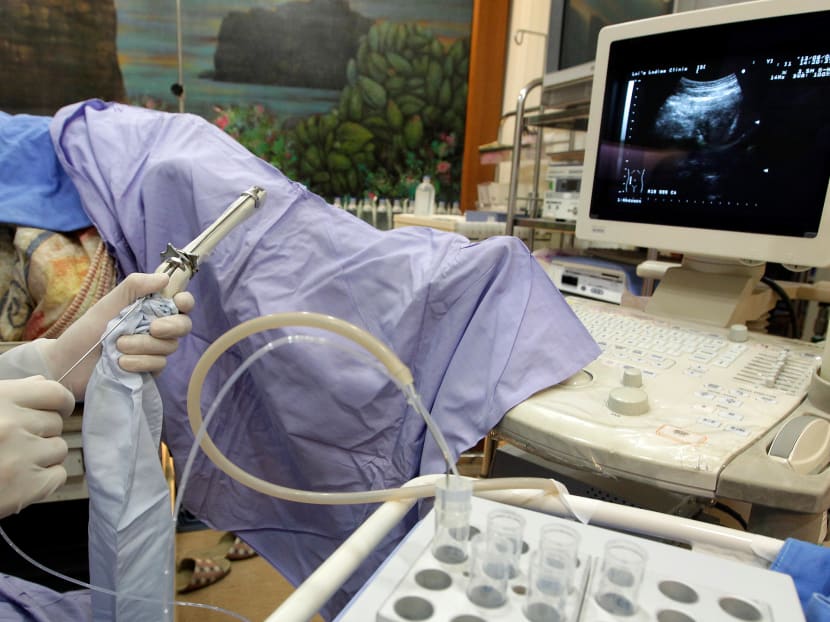Tighten rules for doctors referring women to overseas facilities for social egg freezing
The ban on social egg freezing in Singapore was recently debated in Parliament. The procedure refers to women choosing to freeze their eggs for non-medical reasons.

A demonstration in an overseas facility of the preparation to take eggs from the ovaries with a needle.
The ban on social egg freezing in Singapore was recently debated in Parliament. The procedure refers to women choosing to freeze their eggs for non-medical reasons.
It was reported that there is a growing number of women here who travel abroad to freeze their eggs because it is not allowed in Singapore unless there is a medical reason.
In recent years, there have been fertility doctors in Singapore who have taken a more active role in this process, by providing medical screening services to assess ovarian reserves and giving advice and referrals for women planning to freeze their eggs overseas.
What may have been largely overlooked are the possible financial interests that fertility doctors may have in foreign medical institutions that could bias their advice to patients, in particular their recommendations of suitable foreign fertility clinics for egg freezing.
It would thus be good that the following safeguards be implemented.
First, there should be strict standardised guidelines on informing patients about the medical risks and failure rates of egg freezing.
In particular, older women should be made aware that they need to undergo multiple egg collection and freezing cycles to obtain a sufficient number of frozen eggs to have a reasonable chance of future pregnancy.
For women who freeze their eggs overseas and make that trip just once, they would be in for a very big disappointment should they fail to conceive in the future with their own eggs.
Scientific data published in reputable medical journals claim high success rates of in-vitro fertilisation (IVF) with frozen eggs, but these may be misleading to patients who lack specialised knowledge in this area.
For example, patients are often ignorant that many of such published studies were comparing frozen and fresh donated eggs of young women between 20 and 25 years of age, which were collected specifically for use by infertile patients.
This is certainly not reflective of older career women freezing their eggs, who are typically aged from mid-30s to early-40s, with lower-quality eggs.
Perhaps, the Ministry of Health should prepare a standard booklet, pamphlet or website page of relevant information for women intending to do egg freezing overseas.
Second, it must be made mandatory for fertility doctors to advise their patients against egg freezing, if certain factors are present that would drastically lower their chances of conceiving with frozen eggs.
These include being above 40 years of age, or if medical screening were to diagnose certain conditions, including exceptionally low ovarian reserves, health problems with their ovaries such as polycystic ovary syndrome or health problems with their womb such as extensive uterine fibroids, scarring or adhesions.
Third, for greater transparency, for fertility doctors recommending or referring patients to do egg freezing overseas, it should be compulsory for them to openly declare their financial interests in relevant foreign medical institutions, such as shareholding or joint proprietorship.
ABOUT THE WRITER:
Dr Alexis Heng Boon Chin is a Singaporean working as an associate professor at Peking University, with interest in biomedical ethics.
Have views on this issue or a news topic you care about? Send your letter to voices [at] mediacorp.com.sg with your full name, address and phone number.






